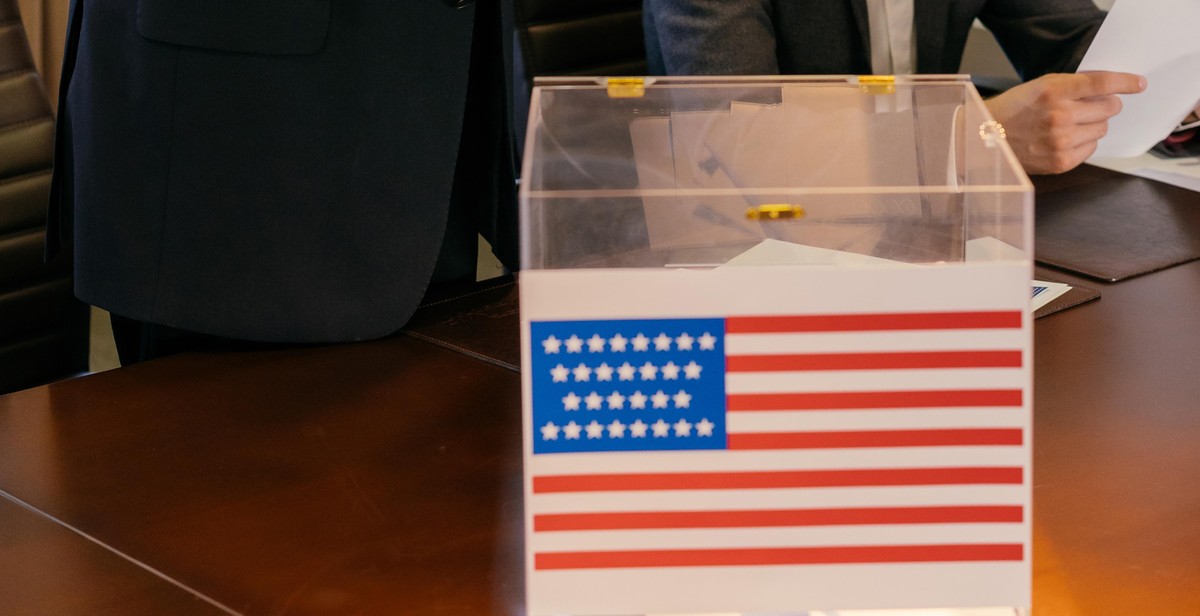How to Engage in Political Discussions with Friends and Family
Politics is a sensitive topic that can easily lead to heated arguments and damaged relationships. However, it is essential to engage in political discussions with friends and family to understand their perspectives, share your own opinions, and learn from each other. It is possible to have constructive conversations about politics without causing conflicts or hurting each other’s feelings.
Prepare Yourself
Before engaging in a political discussion, it is crucial to prepare yourself. Make sure you have enough knowledge about the topic you want to discuss. Research and gather relevant information from credible sources to support your views. Additionally, prepare yourself emotionally by being open-minded and willing to listen to other people’s opinions without being defensive.
Set Ground Rules
Setting ground rules before starting the discussion can help prevent misunderstandings and conflicts. Agree on the topics to discuss, the tone to use, and the time limit for the conversation. Also, agree to disagree and respect each other’s opinions, even if you do not agree with them.
Be Respectful
Respect is crucial in political discussions. Avoid personal attacks, name-calling, or insulting each other. Instead, focus on the issues and share your opinions respectfully. Also, listen actively to what others are saying and ask clarifying questions to understand their viewpoints better.
By following these tips, you can engage in political discussions with friends and family without causing conflicts or damaging your relationships. Remember, the goal of the conversation is not to change each other’s minds, but to understand each other better and learn from each other.
Understanding Political Discussions
Political discussions can be difficult, especially when it comes to engaging in conversations with friends and family members who hold different political views. These discussions can quickly turn into heated arguments, leaving both parties feeling frustrated and angry. However, it is important to understand that political discussions can also be productive and informative when approached with an open mind and respectful communication.
Why Political Discussions Can Be Difficult
One of the main reasons why political discussions can be difficult is because politics is a deeply personal topic. People’s political beliefs are often shaped by their upbringing, education, life experiences, and cultural background. When someone challenges these beliefs, it can feel like a personal attack. Additionally, political discussions often involve complex issues that don’t have easy solutions. It’s easy to become overwhelmed and frustrated when trying to navigate these issues.
The Importance of Respectful Communication
Respectful communication is key when engaging in political discussions. It’s important to listen to the other person’s point of view and try to understand where they’re coming from. Avoid attacking their character or intelligence, and instead focus on the issues at hand. Use “I” statements to express your own beliefs and opinions, rather than making broad generalizations. It’s also important to be open to changing your own views if presented with new information or perspectives.
Another important aspect of respectful communication is acknowledging the emotions involved in political discussions. It’s okay to feel passionate about your beliefs, but it’s important to express those emotions in a constructive way. Avoid resorting to name-calling, yelling, or other disrespectful behaviors.
Ultimately, the goal of political discussions should be to learn from each other and gain a deeper understanding of complex issues. By approaching these discussions with an open mind and respectful communication, it’s possible to have productive and informative conversations with friends and family members who hold different political views.

Preparing for a Political Discussion
Engaging in a political discussion with friends and family can be challenging, especially when there are different opinions on the topic. However, it is essential to prepare for the discussion to ensure that you have a productive conversation. Here are some tips to help you prepare:
Gathering Information
Before engaging in a political discussion, it is crucial to gather information on the topic. You can do this by reading articles, watching news programs, and listening to podcasts. It is essential to get information from different sources to have a well-rounded understanding of the topic. Additionally, gather statistics and facts that support your argument. This will help you make a compelling case during the discussion.
Considering Your Own Biases
Everyone has their biases, and it is essential to recognize them before engaging in a political discussion. Take the time to reflect on your beliefs and opinions and how they might impact the conversation. It is crucial to be open-minded and willing to listen to other perspectives. Consider the possibility that you might be wrong and be willing to change your opinion if presented with compelling arguments.
It is also important to check your emotions before engaging in the discussion. Political discussions can be emotionally charged, and it is easy to get defensive or aggressive. Take a deep breath and approach the conversation with a calm and rational mindset. Remember that the goal of the discussion is to share ideas and understand different perspectives.
By gathering information and considering your own biases, you will be better equipped to engage in a political discussion with friends and family. Keep an open mind and be respectful of others’ opinions to have a productive conversation.

Engaging in a Political Discussion
Political discussions can be tricky, especially when you are talking to friends and family who may have different opinions. However, it is possible to engage in a meaningful conversation without getting into a heated argument. Here are some tips on how to do so:
Active Listening
One of the most important things when engaging in a political discussion is to listen actively. This means paying attention to what the other person is saying and trying to understand their perspective. Avoid interrupting or dismissing their opinions, even if you disagree with them. Instead, listen to their arguments and ask questions to clarify their point of view.
Asking Questions
Asking questions is a great way to keep the conversation going and to learn more about the other person’s perspective. Avoid asking leading questions or questions that are designed to prove your point. Instead, ask open-ended questions that encourage the other person to share their thoughts and feelings. For example, “What do you think about this issue?” or “How do you feel about this policy?”
Sharing Your Perspective
When it’s your turn to speak, share your perspective in a respectful and thoughtful manner. Avoid attacking the other person’s opinions or making personal attacks. Instead, focus on the issue at hand and present your arguments in a clear and concise way. Use facts and evidence to support your position and be willing to concede points if the other person presents a compelling argument.
Finding Common Ground
Finally, try to find common ground with the other person. Even if you disagree on some issues, there may be areas where you can agree. Look for shared values or goals and build on those. For example, if you both believe in the importance of free speech, you can discuss how that applies to different political issues.
Remember, the goal of a political discussion is not to win an argument but to learn from each other and to understand different perspectives. By actively listening, asking questions, sharing your perspective, and finding common ground, you can engage in a productive and respectful conversation with friends and family.

Handling Conflict
Political discussions can be passionate and heated, and it’s not uncommon for disagreements to arise. However, it’s important to recognize when a discussion has turned into a conflict and when it’s time to end the conversation before it becomes destructive.
Recognizing When to End the Discussion
There are several signs that a political discussion has turned into a conflict:
- People are talking over each other and not listening to what the other person is saying.
- The conversation has become personal, with insults or attacks being thrown around.
- The discussion has become circular, with no progress being made towards a resolution.
- People are getting visibly upset or angry.
When any of these signs are present, it’s time to end the discussion. Continuing the conversation will only escalate the conflict and make it more difficult to resolve.
Resolving Conflict
If a conflict does arise, there are several steps that can be taken to resolve it:
- Take a break. If the conversation has become heated, take a few minutes to cool down before continuing the discussion.
- Listen actively. Make an effort to understand the other person’s point of view, even if you don’t agree with it.
- Use “I” statements. Instead of attacking the other person, express how you feel about the situation.
- Look for common ground. Identify areas where you both agree and build from there.
- Acknowledge differences. It’s okay to disagree, but try to do so respectfully.
- End on a positive note. Even if you don’t reach a resolution, end the conversation on a positive note by expressing your appreciation for the other person’s willingness to have the discussion.
By following these steps, conflicts can be resolved in a productive and respectful manner.
Conclusion
Engaging in political discussions with friends and family can be challenging, but it’s important to remember that everyone has different perspectives and experiences that shape their beliefs. To have productive conversations, it’s essential to approach the discussion with an open mind, a willingness to listen, and a respect for different opinions.
By following the tips outlined in this article, you can engage in political discussions with your loved ones in a way that is respectful, informative, and enjoyable. Remember to stay calm, ask questions, use evidence to support your arguments, and be willing to learn from others.
It’s also important to recognize when a conversation may not be productive or when it’s time to end the discussion. If a conversation becomes too heated or personal, it’s okay to take a break or agree to disagree.
Ultimately, engaging in political discussions with friends and family can be a great way to learn from each other, challenge your beliefs, and strengthen your relationships. By approaching these conversations with empathy and respect, you can have meaningful and productive discussions that benefit everyone involved.
Remember these tips:
- Approach the discussion with an open mind
- Stay calm and respectful
- Ask questions and listen to different perspectives
- Use evidence to support your arguments
- Recognize when a conversation may not be productive
- Agree to disagree
By following these tips, you can engage in political discussions with your loved ones in a way that is productive and respectful.
